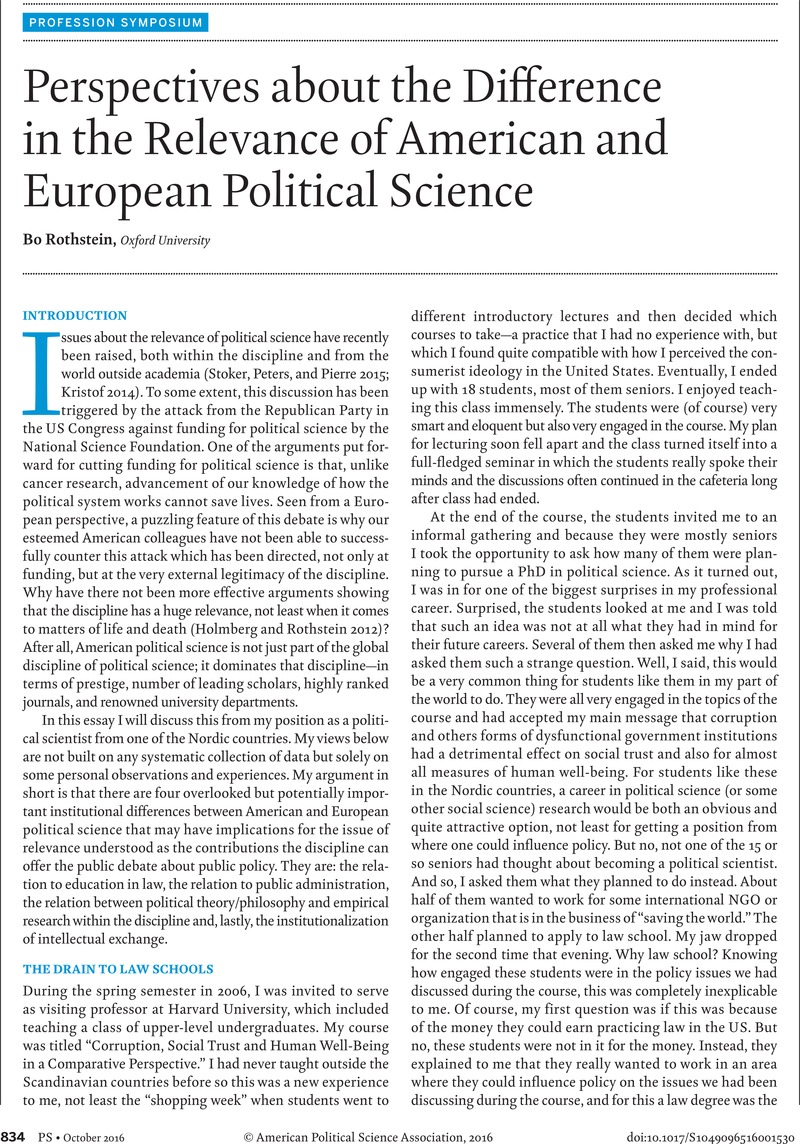Crossref Citations
This article has been cited by the following publications. This list is generated based on data provided by Crossref.
Naurin, Elin
and
Öhberg, Patrik
2021.
Ethics in Elite Experiments: A Perspective of Officials and Voters.
British Journal of Political Science,
Vol. 51,
Issue. 2,
p.
890.
Miller, Angela
2022.
The Past is Holding Us Back: Applying Foresight to Move the Disciplines of Political Science and International Relations Forward.
World Futures Review,
Vol. 14,
Issue. 1,
p.
80.
Nishikawa, Masaru
Sakai, Daisuke
and
Matsui, Akira
2024.
The impact of the internationalization of political science on publishing in two languages: the case of Japan, 1971–2023.
Scientometrics,



